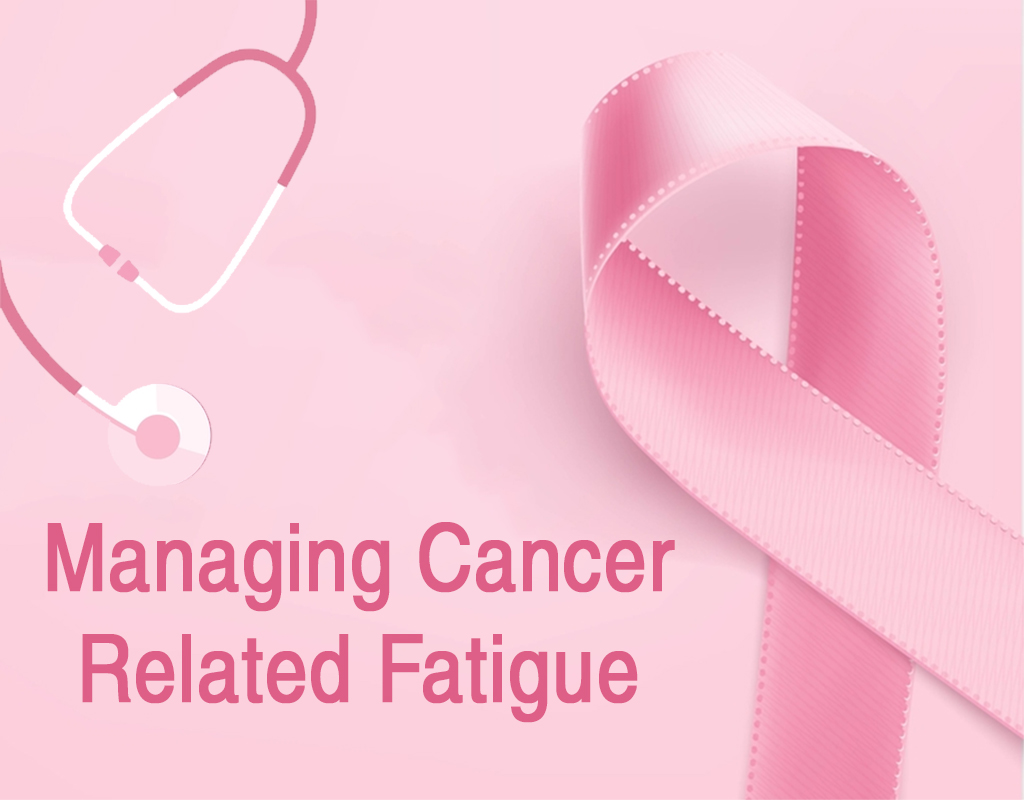Fatigue, generally stated as feeling exhausted weak or tired, affects most cancer patients during their treatment. While cancer itself and its treatment may cause fatigue, the exact reasons for fatigue in patients with cancer is still a mystery.
What is Cancer?
Cancer, a generic name that portrays a broad set of related diseases, results from unrestrained cell growth. Every case of cancer has its uniqueness. While some cancers take many years to become dangerous, others grow quickly. Cancers typically have their own set of growth properties and genetic change. Even between cancer cases of the same organ (i.e.Oral cancer, breast cancer), vast differences are found.
Cancer and its Impact on Patients
A cancer diagnosis can cause a great deal of stress to the patients. Apart from timely treatment, it is vital to understand that patients diagnosed with cancer go through the implicit life-threatening condition, which results in acute levels of anxiety, anger, as well as self-reproach. Hence, numerous cancer patients feel tired with the treatment, cannot think clearly or concentrate and show indifference to the activities that they often enjoy. This condition is referred to as cancer fatigue, cancer treatment-related fatigue, or Cancer-Related Fatigue (CRF).
Cancer-Related Fatigue (CRF)
CRF is the most common side effect of cancer and cancer treatment. Symptoms can be psychological, biological, or emotional (behavioral). Fatigue occurs in 14 – 96% of cancer patients, particularly those receiving cancer treatments. To treat cancer-related fatigue (CRF) effectively, cancer treatment and fatigue related to cancer have to be differentiated from other types of fatigue.
Health professionals use terms such as asthenia, weakness, lassitude, prostration, lack of energy and exercise intolerance to describe fatigue. CRF often described as “paralyzing”, cannot be predicted by tumor type, treatment, and stage of illness. It usually comes suddenly, is not caused by physical exertion or activity, and is not relieved by sleep or rest. Generally, CRF might continue even after treatment is complete.
Psychological Factors
Fatigue can become a significant issue in cancer patients. It might affect how they feel about themselves in daily activities, relationships with others, family care, and whether they continue with cancer treatment. Patients receiving cancer treatments might miss school or work, withdraw from family or friends, require more rest or sleep, and, in some instances, might not be able to perform any physical activities or think clearly due to fatigue.
Finance becomes a significant difficulty if patients with fatigue are required to leave or stop working completely. Job loss could cause hindrances in getting appropriate medical care. Understanding fatigue and its causes are vital in helping cancer patients cope with fatigue and determining effective treatment.
Tests to measure fatigue levels
How much fatigue patients feel and how long fatigue lasts depends on the schedule and type of cancer treatment. For instance, patients treated with chemotherapy cycles generally have more fatigue immediately after treatment and reduces until the next treatment. Patients undergoing external-beam radiation therapy typically have extra fatigue as their treatment continues. Following diagnostic tests, surgeries and emotional distress to cope with a cancer diagnosis, it is possible that most of the cancer patients might already be suffering from fatigue even before the treatment begins.
Treatment Options Available
As cancer-related fatigue could be the result of many factors, the doctor may prescribe more than one therapy to decrease and cope with your symptoms. Treatment recommendations may include self-care techniques and medicines or medical procedures in some cases.
Medical Interventions
There may be medicines available to treat the underlying cause of fatigue. For example, if fatigue is caused by anemia, then blood transfusions can help. Another option could be medicines that stimulate the bone marrow to produce more red blood cells. However, similar to any medicine, these medications should be used with proper cautions.
If a patient is depressed, the doctor may prescribe medicines that help in reducing the depression, increasing appetite and improving the overall sense of well-being. Sometimes medicines to help you sleep can be given as improving the ability to sleep may reduce fatigue.
Suitable pain management methods actually go a long way in reducing fatigue. However, some pain drugs can make fatigue go worse, so the patient has to work with the doctor to achieve an appropriate balance.
Self-care Options
Patients may have to do certain things on their own. Some of the things they can try include:
Saving Energy: Patients should conserve energy for most important activities and keep track of times they feel at their best. They can then plan to do important activities during these times.
Maintaining Energy: Eating well and drinking lots of fluids helps in keeping energy reserves up. Caffeine and alcohol is a strict no. If vomiting and nausea make it hard to eat, Consultation with the doctor on these side effects may help.
Taking it easy: Taking short intervals of rest (not more than one hour) all through the day rather than resting for an extended period may help prevent fatigue.
Light exercises: Light exercises or just walking, whenever it is possible, throughout the week can help preserve the energy level and may even help prevent fatigue during the treatment.
Conclusion
Cancer-related fatigue is a distressing and highly prevalent symptom experienced by the majority of cancer patients both during the period of treatment and in the period after completion of the treatment. CRF not only imposes a financial burden by restraining the patient’s ability to work efficiently, but is also linked to psychological distress at significant levels. Effective interventions to decrease CRF, both during and after the treatment, are urgently required, and this has the potential to improve patients’ emotional and psychological wellbeing, including physiological functioning.
For more information about Cancer related issues book an appointment with the Best Oncologist in India.


















